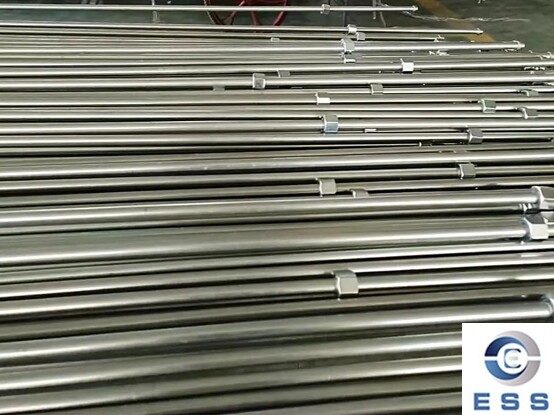
High-pressure hydraulic
tubes for the aerospace industry are key components to ensure the stable
operation of various systems of aircraft, and play an irreplaceable role in the
entire aerospace field. In order to ensure the safety and performance of
aircraft, the high-pressure hydraulic tubes used are usually seamless
steel pipe or carbon
steel pipe, which have excellent pressure resistance and reliability. So
what are the advantages of high-pressure hydraulic tubes in the aerospace
industry? What are they used for?
Advantages in the aerospace industry
1. Extreme pressure resistance and
reliability
The working conditions in the aerospace
field are complex and extreme, and high-pressure hydraulic tubes need to
withstand ultra-high pressure. The hydraulic system pressure of modern large
passenger aircraft can reach 3000psi - 5000psi (about 20.7MPa - 34.5MPa), and
the pressure of high-performance aircraft such as fighter jets is even higher.
This requires extremely sophisticated hydraulic tube materials and
manufacturing processes to ensure no leakage or bursting under high pressure,
and to ensure flight safety.
2. Excellent environmental resistance
Aircrafts must experience a variety of
environments from low temperatures at high altitudes to high temperatures on
the ground, from dry to humid. High-pressure hydraulic tubes must have
excellent corrosion resistance and fatigue resistance. In high altitude and low
temperature environment, the hydraulic tube material cannot become brittle to
prevent pressure shock from causing rupture; when flying in coastal areas or
operating at sea, it must be able to resist salt spray corrosion to ensure
long-term stable operation.
3. Good flexibility and bendability
The internal space of the aircraft is
compact, and the hydraulic tube needs to be reasonably arranged in a limited
space. Therefore, the high-pressure hydraulic tube must have good flexibility
and bendability, and can be bent into various shapes according to design
requirements to adapt to different installation positions and directions. At
the same time, it can still maintain its pressure resistance and sealing
performance after bending.
Application in the aerospace industry
1. Flight control system
In the aircraft flight control system, the
high-pressure hydraulic tube is responsible for transmitting hydraulic oil and
driving components such as rudders, ailerons, and elevators. By accurately
controlling the flow and pressure of the hydraulic oil, the pilot can flexibly
control the flight attitude of the aircraft.
2. Landing gear system
The landing gear is a key component for
aircraft take-off and landing, and high-pressure hydraulic tubes are used to
control the retraction and braking of the landing gear. At the moment of
landing, the landing gear is subjected to huge impact force. The high-pressure
hydraulic tube needs to quickly transmit hydraulic energy to make the braking
system work efficiently and ensure safe braking of the aircraft. During the
take-off phase, the landing gear must be quickly retracted to reduce air
resistance and ensure flight safety and efficiency.
3. Aircraft engine system
The fuel regulation and lubricating oil
delivery systems of aircraft engines rely on high-pressure hydraulic tubes.
When the engine is working, the fuel regulation system needs to accurately
control the fuel flow, and the high-pressure hydraulic tube quickly transmits
the hydraulic signal to ensure that the engine operates stably under different
working conditions and outputs appropriate thrust to meet the needs of
different stages such as take-off, cruising, and landing.
Summary
In summary, high-pressure hydraulic tubes
for the aerospace industry are deeply integrated into core systems such as
flight control, landing gear, and aircraft engines due to their unique pressure
resistance and environmental resistance. It is not only a guarantee for the
stable operation of various aircraft systems, but also a key force to promote
the continuous progress of aerospace technology.













 Eastern Steel Manufacturing Co.,Ltd not only improve product production and sales services, but also provide additional value-added services. As long as you need, we can complete your specific needs together.
Eastern Steel Manufacturing Co.,Ltd not only improve product production and sales services, but also provide additional value-added services. As long as you need, we can complete your specific needs together.










